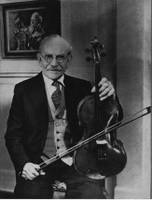Life of a Human Piledriver
“Information-based society.” oh, man, how many times have we heard about this canned notion already? But that is the word on the street. serious knowledge. the Real Deal. my fortune cookie even said so the after an evening of Szechuan Tofu. On a little scrap of ribbon paper it read: "Gazpacho is tomato based; a rue, flour based. You are Information based." The 14th Patriarch couldn't have said it better.
The Internet is certainly one key ingredient in this tepid and endless information soup. And papers of all kinds, another. I wonder too if even the T.M.I. or “Too-Much-Information” heard from housemates concerning their certain personal details may become an informational hair on the back of a particularly distracted camel overburdened with Knowing. But still, the world wideness of the web accounts for a bulk lot of it, the camel's share. Stuck in that web, you might flounder and perish. and its only Tuesday! you still have a whole week of whatever you are supposed to get through.

…
Long before the advent of the Internet and its virtual virtues, I was raised in a household that admired not only information, but the extensive storing of information -hardcopy- and of too much of it. If you file these things Dewey-decimal like, it’s called a library. If you stack the cut-out articles and coupons from magazines, newspapers and everything else in piles and unlabelled boxes that form corridors of passage through a room, that is a fire hazard. and moreso, it is PackRat-ism.
Like a baby mouse, I was reared in a capacious nest of shredded paper. and it is a tendency I have to fight still now that I roam the meadow by myself. It is piles (usually tidy) that my housemate, C., worries might fall over in the middle of the night in my room…

But my pile issues are so very different from some people in town, who have embraced two Great American Traditions and rolled them into one in a PB to the J sandwich manner. The venerable practices of:
Hoarding & Driving
-- and doing them simultaneously.
I refer to this lifestyle as “piledriving” so only logically these folks are Piledrivers. One piledriver I know of works at the Food Co-op. He drives Suburban that looks like it was once shiny copper, but is now rained-stained into a cupric green patina. It is stuffed almost exclusively with old newspapers. All accept the driver’s seat. if just barely.

I don’t know how he drives it, because if you look into the driver’s side window, there is literally no space to move your elbows. Maybe he only drives in straight lines. Maybe he just shifts his weight left or right while the rig is rolling forward. I’m not sure.
The other one I know lives two houses down from me. Not surprisingly, this fellow also drives an old Chevy Suburban (if you are going to haul, you HAUL, baby).

The photo is a night shot, and not so good, so I hope the sense conveys (unlike the other guy, I’m a little afraid of this piledriver, so I opt to have the cover of darkness). He carries a wider range of things in his snail shell, including a lot of old fast food wrappers, books, and assorted memorabilia (note St. Mickey, Patron Saint of Adorable Overconsumption, on the dash).

…
There are books probing the psychology of this kind of behavior. you might in fact find it in one of these Suburbans if you look hard. but even if there were, would you read it? One thing that is common among hoarding is that what one holds onto is largely if ever put to use. If you are really good at this kind of thing, maybe congratulations, they call you “ a collector.”
There is that thing about Letting Go. but I have a hard time of it.
The other day my computer crashed, and in that moment, all of my outbox from January of this year to now soundlessly vanished. it is nowhere to be found. I told D. about this misfortune, and she mused, that, well, “how could you ever say you ever really gave those messages and letters to the people you sent them off to if you still hold onto them?” Trust the seminarian to drop the straight truth on you like it was the time of day. After all, I don’t have the paper letters I sent anyone, so, yes, really why should I have the bytes?
I understand this, intellectually. but my mouse-mind is small. native to its ways. and reluctant to lose hold of the warm and secure bedding these habitual scraps have all become.

The Internet is certainly one key ingredient in this tepid and endless information soup. And papers of all kinds, another. I wonder too if even the T.M.I. or “Too-Much-Information” heard from housemates concerning their certain personal details may become an informational hair on the back of a particularly distracted camel overburdened with Knowing. But still, the world wideness of the web accounts for a bulk lot of it, the camel's share. Stuck in that web, you might flounder and perish. and its only Tuesday! you still have a whole week of whatever you are supposed to get through.

…
Long before the advent of the Internet and its virtual virtues, I was raised in a household that admired not only information, but the extensive storing of information -hardcopy- and of too much of it. If you file these things Dewey-decimal like, it’s called a library. If you stack the cut-out articles and coupons from magazines, newspapers and everything else in piles and unlabelled boxes that form corridors of passage through a room, that is a fire hazard. and moreso, it is PackRat-ism.
Like a baby mouse, I was reared in a capacious nest of shredded paper. and it is a tendency I have to fight still now that I roam the meadow by myself. It is piles (usually tidy) that my housemate, C., worries might fall over in the middle of the night in my room…

But my pile issues are so very different from some people in town, who have embraced two Great American Traditions and rolled them into one in a PB to the J sandwich manner. The venerable practices of:
Hoarding & Driving
-- and doing them simultaneously.
I refer to this lifestyle as “piledriving” so only logically these folks are Piledrivers. One piledriver I know of works at the Food Co-op. He drives Suburban that looks like it was once shiny copper, but is now rained-stained into a cupric green patina. It is stuffed almost exclusively with old newspapers. All accept the driver’s seat. if just barely.

I don’t know how he drives it, because if you look into the driver’s side window, there is literally no space to move your elbows. Maybe he only drives in straight lines. Maybe he just shifts his weight left or right while the rig is rolling forward. I’m not sure.
The other one I know lives two houses down from me. Not surprisingly, this fellow also drives an old Chevy Suburban (if you are going to haul, you HAUL, baby).

The photo is a night shot, and not so good, so I hope the sense conveys (unlike the other guy, I’m a little afraid of this piledriver, so I opt to have the cover of darkness). He carries a wider range of things in his snail shell, including a lot of old fast food wrappers, books, and assorted memorabilia (note St. Mickey, Patron Saint of Adorable Overconsumption, on the dash).

…
There are books probing the psychology of this kind of behavior. you might in fact find it in one of these Suburbans if you look hard. but even if there were, would you read it? One thing that is common among hoarding is that what one holds onto is largely if ever put to use. If you are really good at this kind of thing, maybe congratulations, they call you “ a collector.”
There is that thing about Letting Go. but I have a hard time of it.
The other day my computer crashed, and in that moment, all of my outbox from January of this year to now soundlessly vanished. it is nowhere to be found. I told D. about this misfortune, and she mused, that, well, “how could you ever say you ever really gave those messages and letters to the people you sent them off to if you still hold onto them?” Trust the seminarian to drop the straight truth on you like it was the time of day. After all, I don’t have the paper letters I sent anyone, so, yes, really why should I have the bytes?
I understand this, intellectually. but my mouse-mind is small. native to its ways. and reluctant to lose hold of the warm and secure bedding these habitual scraps have all become.







